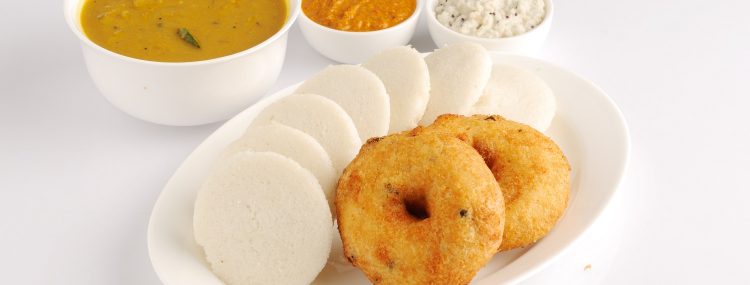
5 Myths about healthy breakfast
To eat or not to eat breakfast like a king? Myths and facts abound around what a healthy breakfast should be.
A healthy breakfast is one that contains both rich proteins and complex carbohydrates with a touch of healthy oils to keep your blood sugar levels steady and energy levels high. Keeping blood sugar levels steady is of utmost importance to diabetics as well. Students and kids need the energy and the brain boosting nutrition from the right combination of foods before they leave for school. In the absence of the right amount of glucose, the brain is starved of energy supply and this affects memory, concentration and performance at school.
Breakfast also, is a very important meal for pregnant women who can tend to have low sugars in the morning.
However, there are some myths that envelope the very concept of healthy breakfast. Here is a rundown on what’s right and what’s not with the morning meal.
Myth # 1: Eating breakfast makes you lose weight:
Advocated by most health magazines, nutritionists and other experts, this one is a very difficult myth to bust. But bust, we must! Eating breakfast alone is not enough to make you lose weight. There are many who eat a hearty breakfast, and yet end up overeating throughout the day, not to mention the lack of physical activity. So, just by “eating like a king” in the morning, will not ensure your weight management. Total calories intake during the day still remains the key to weight loss or overall health.
Myth # 2: Carbs should be avoided in breakfast:
The most common advice given by self styled fitness experts is to avoid carbs of all kinds in the breakfast and eat only proteins. However, no study has ever found any benefit from giving up any food group or nutrient altogether in any meal. National and international health agencies do not recommend avoiding carbs in breakfast or in any other meal. An ideal breakfast would be a combination of fiber rich foods along with good proteins.
Myth # 3: Oats are a must in breakfast:
Loads of research in the west has focused on the health benefits of oats. But what we Indians need to understand is that western diets are predominantly of animal source, high on proteins and fats, but zero on fiber. Indian traditional diets are not devoid of fiber. Regional millets such as jowar, ragi, bajra, foxtail millet are better than oats in terms of both fiber and nutrition. We can still get our heart healthy fiber from a bowl of ragi porridge or foxtail millet khichdi.
Myth # 4: Fruit juices are healthy breakfast options.
Fruit juices whether fresh or packaged, are poor sources of nutrients. Removing the outer skin and seeds, and the mechanical processing to extract the juice renders the juice devoid of key nutrients like fiber, and water soluble vitamins. All that is left behind is simply sugars in thejuice. It is always better to eat whole fruits instead.
Myth # 5: Boxed cereals are a great breakfast option
For those pressed for time or for those not inclined to cook in the morning, packaged cereals such as cornflakes, muesli, wheat flakes, or chocos can seem like a great, quick breakfast option. Many believe the health claims on these boxes related to the fiber, vitamins and so on. But most packaged cereals contain very little nutrition, and almost always have preservatives and chemicals, not to mention sugar in some form or the other.
With some planning a quick healthy breakfast can still be whipped up with broken wheat or millets.
——————————————————
So what is the ideal combination of foods for breakfast? The options as said are many. Some healthy breakfast options could be
1) A protein rich besan chila(chickpea flour pancake) with paneer, spinach & carrots. The spinach and carrots add colour and vitamins while the paneer and besan are the protein components.
2) Dress up your idlis by steaming them with finely diced carrots, beans, peas and coriander leaves. Instead of coconut chutney you could serve them with sesame seed chutney which is an incredibly rich source of calcium, zinc, magnesium, selenium, niacin and omega-6 fatty acids.
3) You can make interesting versions of paranthas apart from the usual potato/cauliflower/mooli ones. You could add boiled and ground chickpeas or kidney beans to the whole wheat or millet flour to make it rich in protein and fiber. An accompaniment of low fat yoghurt completes this healthy parantha with its probiotic qualities.
4) Millets like ragi are a better choice for idlis or dosas as it is rich in iron and calcium.
5) Dalia porridge with soymilk, flax seed powder, walnuts, raisins, almonds and honey.
6) Poha with sprouts and methi. While the sprouts are rich in protein and fibre, the methi leaves provide iron, calcium and vitamins.
7) If you really cannot find time to whip up any of the above, then make a smoothie with banana, apple, and a small slice of avocado, a scoop of protein powder, dates and skimmed milk.
Rushed for time? A great option is to order your nutritious and fresh breakfasts online at caloriecare.com. Made with the right balance of complex carbohydrates, proteins and fiber, meals at Calorie Care take care of your morning nutrition, with just one click! Log on to caloriecare.com for your perfect healthy breakfast!



